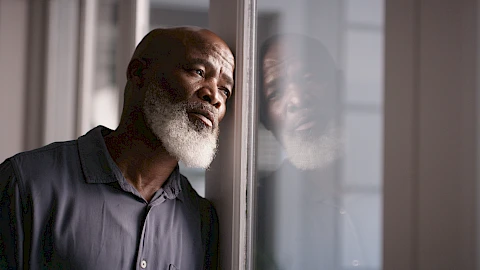
May marks Mental Health Awareness Month. It's a time to shed light on mental health issues and promote mental well-being — an important topic that, unfortunately, often goes overlooked in the senior community.
Depression is more than just feeling "down in the dumps." It's a serious mood disorder that affects how you feel, think, and handle daily activities. As we age, we face many changes and life adjustments that can sometimes lead to depression. It's imperative for seniors and those who care for them to be aware of the signs and symptoms of depression. Let’s look specifically at senior depression — its common signs, how it differs from depression in younger individuals, and the importance of seeking help.
Depression in Seniors
Depression is a severe disorder that affects your thoughts, feelings, and even physical well-being. Many people associate depression with young adults, but it can occur at any stage of life, including the senior years.
In seniors, depression can often go undiagnosed and untreated, as its symptoms can sometimes be mistaken for the natural aging process or the effects of chronic illnesses. However, depression is not a normal part of aging and should not be ignored.
Common Signs of Depression in Seniors
Depression in seniors may manifest differently than it does in younger individuals. Here are some of the most common signs:
- Changes in sleep patterns are often a tell-tale sign. A senior may find it more difficult to fall asleep or stay asleep, or they may sleep more than usual.
- Changes in appetite are also a common symptom. Some seniors may lose interest in eating and struggle with losing their appetite, while others may eat more in response to their feelings of sadness or emptiness.
- Energy levels can also fluctuate noticeably when a senior is dealing with depression. They may feel lethargic, tired, and uninterested in activities they once enjoyed.
The Importance of Seeking Help
Depression in seniors is not something to be taken lightly. It can lead to a decline in physical health, impair cognitive function, and severely impact quality of life. This highlights the importance of seeking help if you or a loved one is displaying symptoms of depression.
Treatment is available and can significantly impact a senior's quality of life. Mental health professionals can provide therapies and medications that effectively manage depression.
How Senior Helpers Can Assist
If you are a senior, there are resources available to help with managing depression. Senior Helpers in Anderson, Oconee, and Pickens Counties is one such organization that is equipped to aid seniors struggling with depression.
Senior Helpers provides compassionate and comprehensive homecare services designed to improve seniors' overall quality of life. Our caregivers are trained to recognize signs of depression. We can provide companionship, engage in activities to keep seniors active and offer assistance in daily tasks that can become challenging with depression.
Discover Comprehensive Senior Care Services
It's important to recognize the signs of depression in seniors and to understand that seeking help is not a sign of weakness but rather a step towards regaining control over one's life and well-being. Depression in seniors is a serious issue, and addressing it head-on can make an immeasurable difference in the lives of those affected.
If you or a loved one is experiencing symptoms of depression, contact us at Senior Helpers Anderson, Oconee, and Pickens Counties. We provide senior care services in and around Easley, Seneca, Belton, Liberty, and Central.